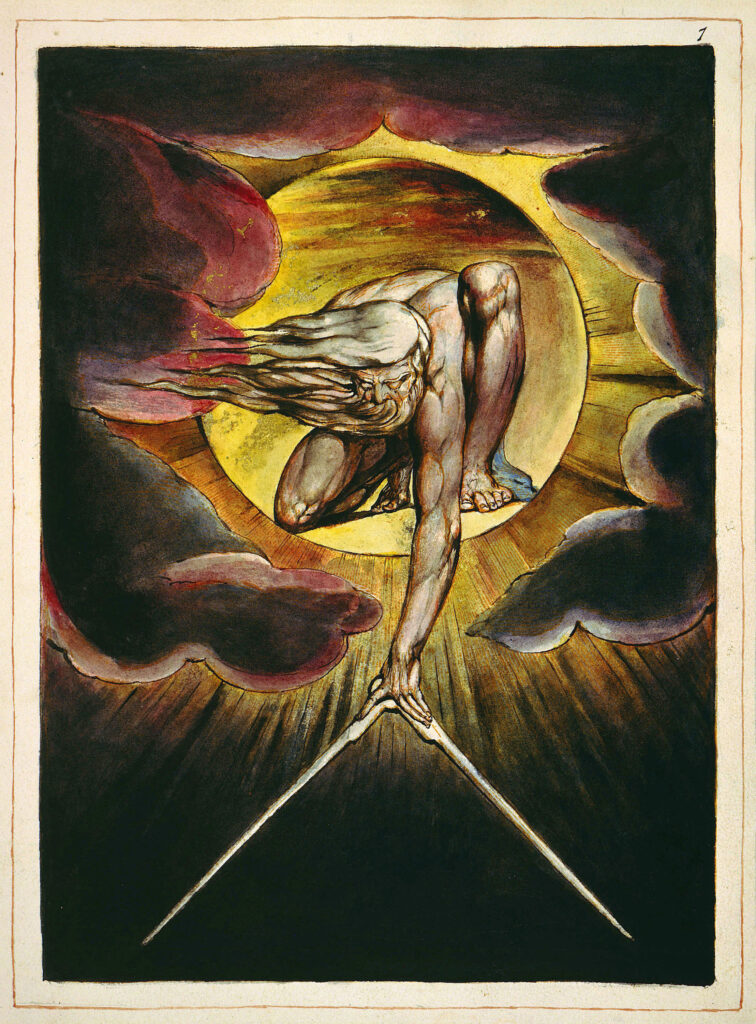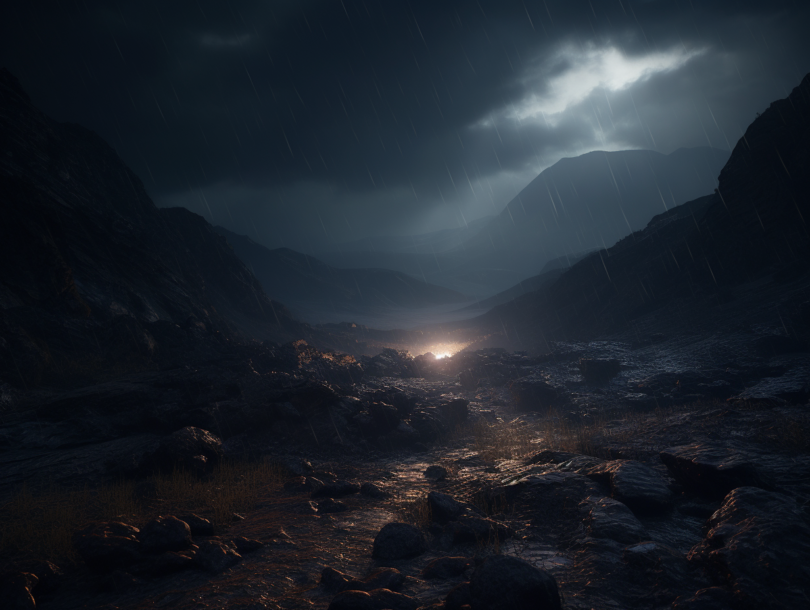In the beginning, God created the heavens and the earth. The earth was without form and void, and darkness was over the face of the deep. And the Spirit of God was hovering over the face of the waters.
— Genesis 1:1,2
Here’s a quick verse study.
On the surface, it appears that this begins the “creation story.” You wouldn’t necessarily be wrong to see it through that lens; however, remember that context is key.
For the most part, here is what we know about what “God created.” Since understanding how vowels work in Hebrew is vital to discerning the meaning of any verse or passage, I have included the etymology of the vowel “created” as used in Gen 1:1 — that God created:
The heavens (meaning the universe) . . .and . . .
The earth (meaning the ground). These are two separate creative acts. The writer of Genesis doesn’t tell us how much time passed between the creation of the universe and the planet we inhabit (which we affectionately call Earth).
Etymology of created: Qal-perfect.
- Qal = The voice of the primary subject is active. There is no secondary subject (or voice). This means that the focus of the opening scene is on God alone. What God is creating is secondary.
- Perfect = The situation described is viewed as a complete whole (like looking at a photograph). There is no indication of past, present, or future because the events in question are undefined. Because of its abstract nature, the perfect is often assumed to be past tense, and is thus translated this way. As its name’s sake indicates, the perfect refers to a perfect state, or a result of perfection caused by a prior event.
What in the world does all this mean? I’m glad you asked.
You could rewrite the first part of Genesis 1 like this: There has never been nothing because there has always been God.
To think of it a different way, if there has never been nothing there has always been something. And that something? Well, strangely enough, it doesn’t care about the past, the present, or the future. How can this be? Because the something in question is God.
God is the first something! And this God? Who has always been something? Well, as it turns out, this God likes to create things. I’m not sure what “create” means, other than it is a thing God does, which must be perfect, and results in other perfect things, because, well, God has always been something. What are some of those things that are the product of what God created? The universe. Our planet. Sea life and birds. I found out later this also extends to plant life, and even human beings. But none of that matters without this perfect God — who has never been nothing, and will always be something.
Now here is where things get interesting, as well as somewhat contradictory. Notice what comes in verse 2: “The earth was without form and void, and darkness was over the face of the deep.”
The emphasis shifts from the creation of two things (the heavens and the earth, with the latter being part of the former), to the earth itself, which we find to be “without form and void. Two seemingly imperfect elements are also mentioned: “the darkness” and “the deep.”
If this perfect God created, and the net effect of this action is a perfect universe, of which Earth is a part, why is it so dismal?
Let’s break this down.
What does it mean for the earth to be without form? In Hebrew the words without and form appear as one common singular noun [תֹ֙הוּ֙ = to-hu] which means unreality, confusion, or empty.” (See Je. 4:23, Is. 34:11, Is. 45:18, Jb. 26:7, for similar references.) And what does it mean for the earth to be void? The words and [and] void likewise appear as one common singular noun [וָבֹ֔הוּ = bo-hu] which means emptiness, waste. The same scriptural references noted above may also apply here.
to-hu . . . bo-hu—without form and void.
The elements of darkness and the deep are cultural references from ancient Judaism (the writing of Genesis is approximated to 1400–950 BCE) used to describe the abstract nature of the subject at hand. Darkness and deep indicate mystery, fear, and foreboding. Again, how can this perfect God create something empty? Why create a wasteland?
Excellent questions. And there are lots of hypotheses out there that attempt to prescribe a solution to what some view as a theological quandary. But the real biblical answer? None of tht stuff matters. The focus is still on God—God’s mysteries, God’s mighty acts . . .God! The point is not what it is (creation) … but what it becomes.
And therein lies the point. Allow me to explain.
Sunday morning, July 2nd, our first day of worship, I forgot to put on deodorant. I said to Kay, “I forgot to put on deodorant!” She wrinkled her nose and pretended to sniff. “I can’t smell ya!” All morning long I was as nervous as a long-tailed cat in a room full of rocking chairs. By the time I got to NAUMC, my stomach turned over when I saw all the cars in the parking lot. I rushed through the back door and to the office to put my robe on. My hands were shaking so bad I couldn’t zip it up.
Pastor Marta giggled and said: “Relax.” We’ve been friends for a lot of years, and I don’t think she has ever seen me that nervous before. Somehow or another I managed to get into my robe, and after a quick prayer with Marta, walked down the aisle as Mrs. Susan played the piano. I felt sick at my stomach the whole time. My hands were shaking so bad I could scarcely open the hymnal, much less my Bible. In a word? It felt like chaos to me. I could feel the words of my sermon leaking out of my mind into a vast sea of forgetfulness.
But then, as I stepped up to the podium to start the sermon, I looked out over the congregation, upon all the expectant faces staring back, and somewhere in the back of my mind a voice said: “Out of darkness comes light.” From then on I can’t really tell you what happened, or how the sermon went (or really what the sermon was even about), or if Communion went off without a hitch. From what I understand, everything went “pretty OK.” God be praised!
“Out of the darkness comes light.” Those words weren’t meant for me. They represent a snapshot of what NAUMC-LaMission is being called forth to be. God is active in bringing about a perfect state. If disaffiliation represents waste, emptiness, darkness, and deep, know that Genesis teaches us that God’s perfect will was already at work through each of those elements. If the second half of the story that begins with “And God said, ‘let there be light . . .,’” dispels that darkness, then know that Genesis teaches us that God’s will is being illumined for our church.
These mighty acts? They are all about God, God, and God! There is certainly abstract chaos that we all deal with every day. But God transcends the chaos. The net effect of this transcendence is something very good. I don’t know what the very good part is, or means, or what it looks like. But my heart skips several beats when I think about the possibilities of what God will soon reveal.

Image: William Blake’s The Ancient of Days




